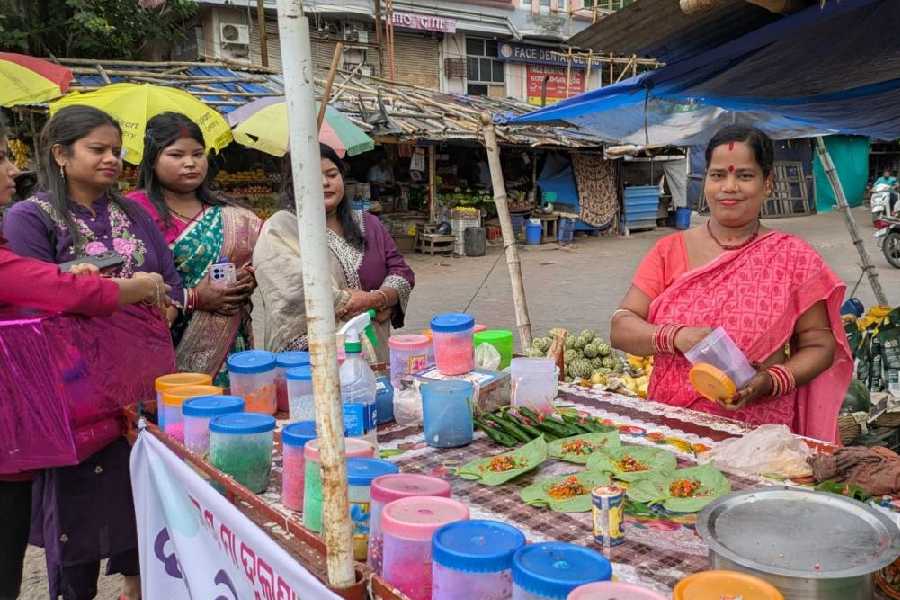Odisha’s three-day Raja festival, which celebrates the spirit of womanhood, began on Saturday with swings and paan stalls returning to street corners across the state.
Though the sex ratio in Odisha remains skewed, the state annually marks the festival to honour women and girls, giving them a symbolic break from household chores.
“The festival is for girls only. All of them wear new dresses and aren’t allowed to do any work,” said Uma Patnaik, a 41-year-old mother of two daughters. “Raja celebrates womanhood. Women and girls are pampered during this time.”
In neighbourhoods across Bhubaneswar, Cuttack and other cities, colourful swings have been installed and hundreds of temporary paan (betel leaf) stalls have popped up — selling everything from traditional mitha paan to novelty varieties like fire paan, ice paan, laddoo paan, and even black forest paan.
“Raja is incomplete without swings and paan. Offering betel leaves during this time is customary,” Patnaik said.
Gitanjali Sahu, a paan seller, said: “I sell around 1,500 paans in three days.”
Sahu said prices range from ₹20 to ₹100, depending on the ingredients used. “I use original spices like gabha jeli, khajuri maka, chickan supari, blackberry jelly, orange jelly, and more. The richer the mix, the higher the price.”
The Odisha Tourism Development Corporation is also retailing specialty paans this year, cashing in on the seasonal craze.
Ranjita Mallik, an employee at a private tutorial group, said the festival holds deep cultural value. “Paan is intrinsically associated with Odias and the state’s culture. We chew paan during Raja. We celebrate womanhood during Raja with grandeur, but crimes against women remain a concern,” she said.
She also cautioned that people should be careful when buying paan from roadside shops.
For many, chewing paan is more than tradition. “Lord Jagannath is offered a paan every day,” said Ramakanta Behera, who works with a mining company.
“There’s nothing wrong in chewing paan. In fact, it helps with digestion,” Behera claimed. However, he warned against the rise of synthetic masalas.
As people shift away from traditional ingredients, they fall prey to multiple diseases, he noted. “We need to promote paan masala prepared at home,” Behera said.











